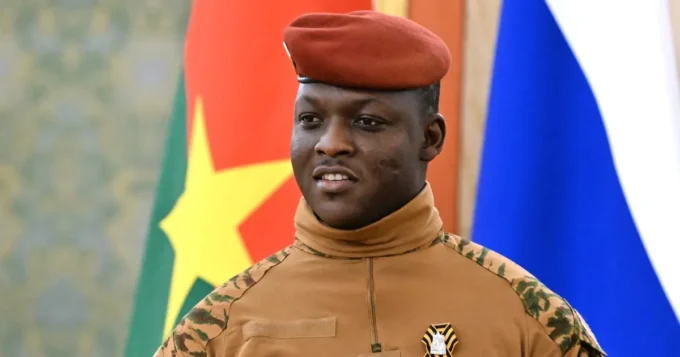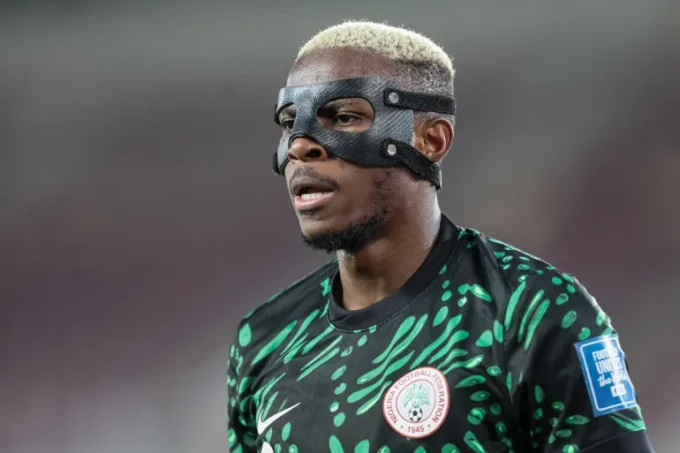Brash, outspoken, and unapologetically controversial, South Africa’s Sports, Arts and Culture Minister Gayton McKenzie has often made headlines for calling out racism and championing the struggles of the country’s coloured community. But now, McKenzie himself is facing accusations of racism over resurfaced social media posts in which he repeatedly used the highly offensive apartheid-era “K-word” to describe black people, a charge he strongly denies.
The South African Human Rights Commission (SAHRC) has given McKenzie until Wednesday to respond, demanding that he delete the offensive posts, issue a formal public apology, and meet other conditions; otherwise, he will face further legal and political consequences. The controversy has ignited heated debate across South Africa, touching raw nerves around identity, race, and political representation three decades after the end of apartheid.
McKenzie, a former gangster turned politician, has long positioned himself as a vocal defender of the coloured community, which makes up around 8% of the South African population. Under apartheid, coloured people those of mixed heritage were legally classified in a racial hierarchy that placed them between white South Africans and black South Africans, leaving them with a unique and painful legacy. Many in the community still express the sentiment that they were “not white enough” under apartheid and “not black enough” in the democratic era.
It is this community that McKenzie’s party, the Patriotic Alliance (PA), has successfully courted. The PA gained parliamentary seats for the first time in the 2024 elections and joined President Cyril Ramaphosa’s multi-party coalition after the African National Congress (ANC) lost its majority for the first time in history. Analysts say Ramaphosa sees McKenzie as a strategic ally to counter the Democratic Alliance (DA) in the battle for the coloured vote, particularly in the Western Cape, where the community is concentrated.
The row began in July when McKenzie condemned remarks made by young black hosts on a popular podcast, Open Chats, which he accused of stereotyping and insulting coloured people. His strong criticism resonated with many coloured South Africans, leading to a police complaint and a referral of the matter to the SAHRC. McKenzie declared at the time that “there should be no place to hide for racists whether you are white, black, or coloured.”
But soon after, critics unearthed McKenzie’s own decade-old tweets in which he used the K-word a racial slur considered one of the most degrading and dehumanizing terms against black people during apartheid. The discovery quickly escalated into a national scandal, with opposition parties, rights groups, and social commentators questioning his moral authority to lead anti-racism campaigns.
McKenzie, however, has refused to back down. In a defiant Facebook Live video, he acknowledged regret over his past posts but insisted that his words were misunderstood. “I always saw myself as black growing up… I’m black and coloured, I’m mixed,” he said, stressing that his identity was shaped by his black mother from the Sotho community and a father of Japanese and Irish heritage. By this reasoning, McKenzie argued, when he used the word “black,” he was including himself in the definition.
The minister also pointed to his role in the anti-apartheid struggle, highlighting that coloured and Indian South Africans fought alongside black South Africans to dismantle the racist system. “If you don’t unite South Africa at a struggle level, your chances of taking over and democratising the country are very limited,” political analyst Professor Kedibone Phago of North West University noted, reflecting how solidarity among oppressed groups was central to the liberation movement.
For now, the controversy has left McKenzie balancing on a political tightrope. While many coloured South Africans continue to see him as their fiercest defender, others accuse him of hypocrisy for attacking racism in others while his own past words come under scrutiny. The SAHRC’s ruling could have significant consequences not only for McKenzie’s political career but also for the stability of Ramaphosa’s fragile coalition government.
The saga underscores how deeply apartheid’s racial wounds continue to shape South Africa’s politics, identity, and public discourse. For McKenzie, the outcome of this storm will determine whether he consolidates his reputation as a fearless advocate or becomes undone by the very issue he has built his political brand upon.














Leave a comment